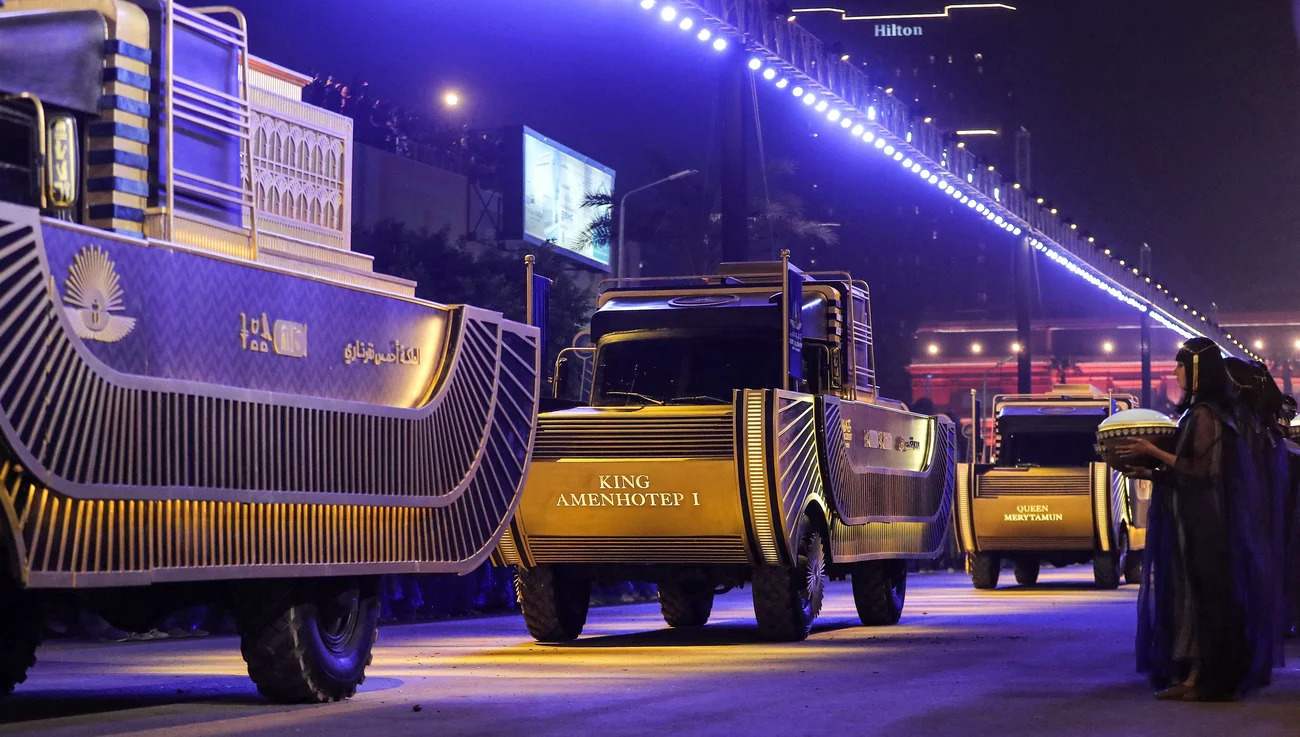But many were nonetheless expected to turn on their TVs for the grand parade of 22 ancient Egyptian royal mummies as they were transferred across the capital, Cairo, on Saturday.
The event, which drew fanfare to the country’s robust collections of antiquities in an elaborate procession, saw the mummies being relocated from the Egyptian Museum in Tahrir Square to the National Museum of Egyptian Civilization.

The spectacle was named The Pharaohs’ Golden Parade and comprised 18 kings and four queens, including some of Egypt’s most prominent rulers of the past. Among them was King Ramses II, one of Egypt’s most famous Pharaohs, who reigned in 12th Century BC. He ruled the New Kingdom for 67 years and was renowned for signing the first known peace treaty, BBC reported.
The royal figures were transported in vehicles specially rigged to carry the remains and a security motorcade surrounded the convoy.
The convoy transported 18 kings and four queens, mostly from the New Kingdom ancient era, in shock-absorber vehicles and specially designed capsules filled with nitrogen to ensure they are protected.

The national treasures traveled about 3 miles from the Egyptian Museum, opened in 1902 in central Cairo’s Tahrir Square, to their new home in the National Museum of Egyptian Civilization in Fustat — the site of Egypt’s capital under the Umayyad dynasty after the Arab conquest.
Moving the mummies has reignited talk of a pharaoh’s curse, particularly on social media, after the ship blocked the Suez Canal, a train crash killed dozens late last month and a building collapsed in central Cairo.
“Death will come on quick wings for those who disturb the king’s peace,” the warning on the tomb of Tutankhamun read, before British archaeologist Howard Carter opened it in 1922.

Members in his expedition later succumbed to freak accidents and death, fueling the myth of the curse, although archaeologists and scientists now say they were likely linked to being exposed to dust and germs in the sealed caverns.
Egyptian archaeologist Zahi Hawass dismissed the rumors.
“Before the mummies will be walking today in the streets of Cairo things happened in Egypt: the boat in the Suez Canal, also the trains had an accident and a building collapsed. Everyone says this is the curse of the mummy, but I say there is no curse of the mummy,” he told NBC News. “The curse is good for TV, for movies and newspapers, but it’s not true. There’s no curse at all.”
Instead, Hawass said locals and foreign tourists will be able to see for themselves the “secrets” held by each mummy once they’re on display.
Officials hope the new museum will be a boon for tourism, a lucrative industry for the country that’s taken a big hit over years of political turmoil and recently, the pandemic, according to BBC.
Egypt’s President Abdel-Fattah el-Sissi expressed his excitement via Twitter about the relocation of the mummies. “With all pride, I look forward to receiving the kings and queens of Egypt after their journey,” he said. “This majestic scene is new evidence of the greatness of this people, the guardian of this unique civilization extending into the depths of history.”



